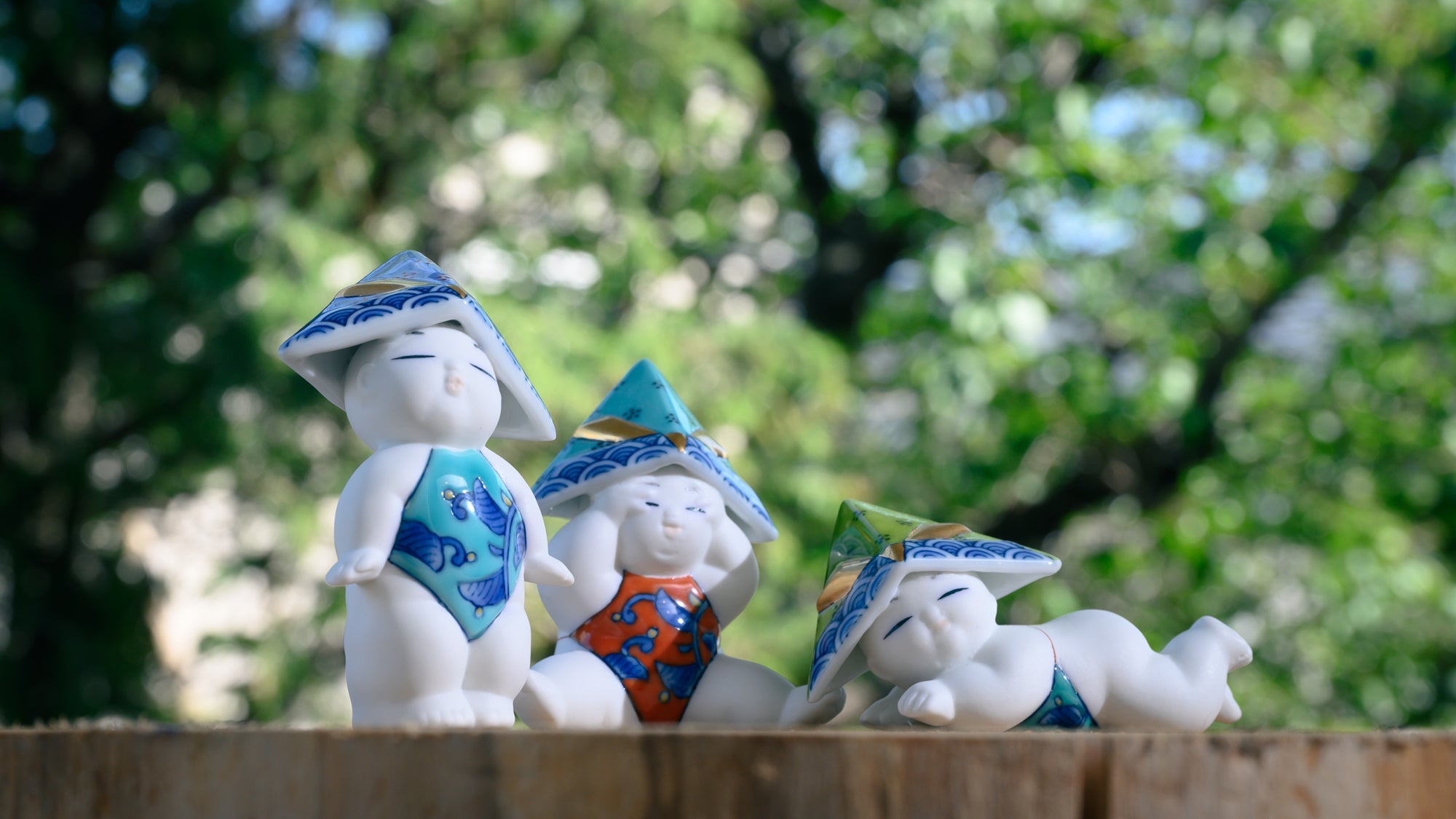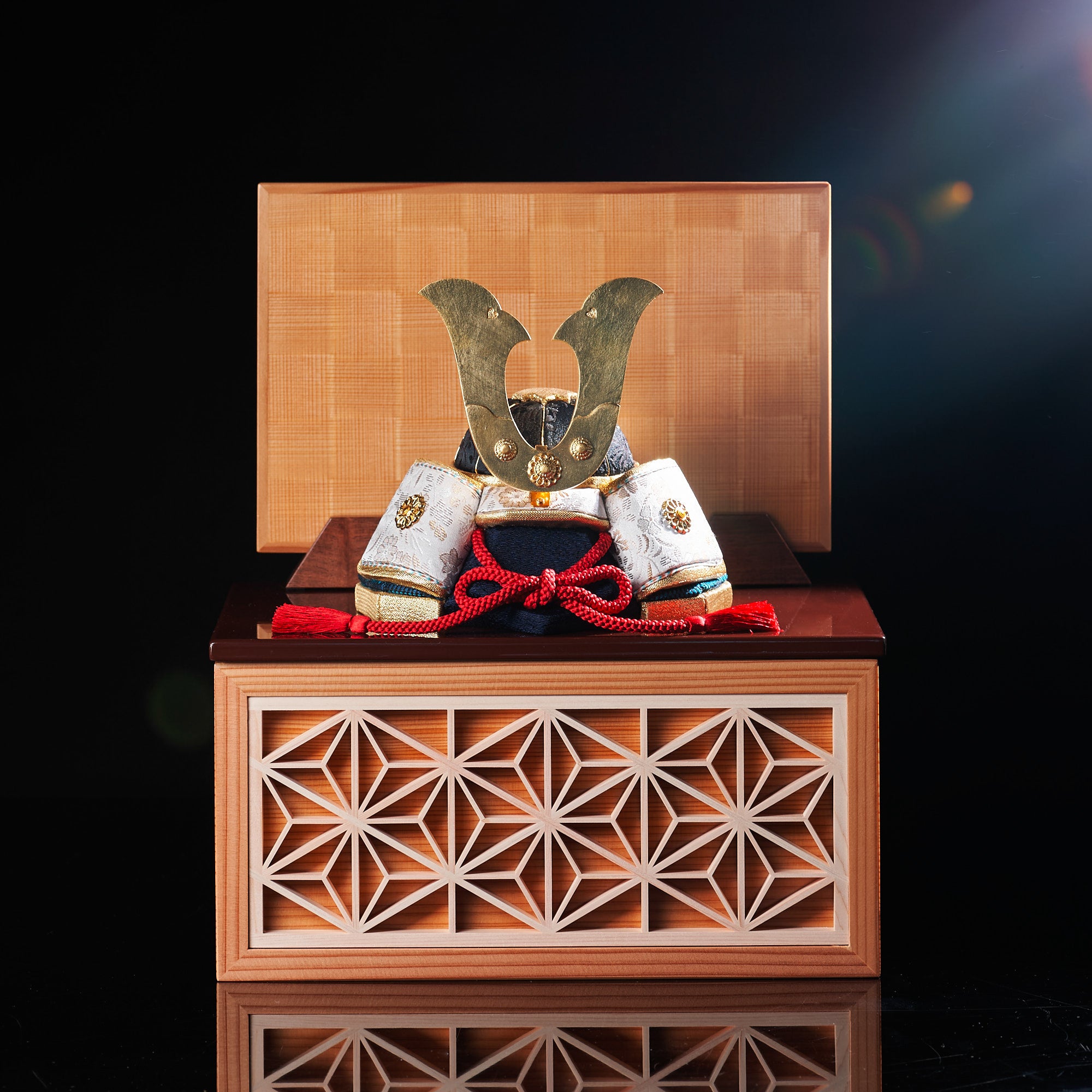
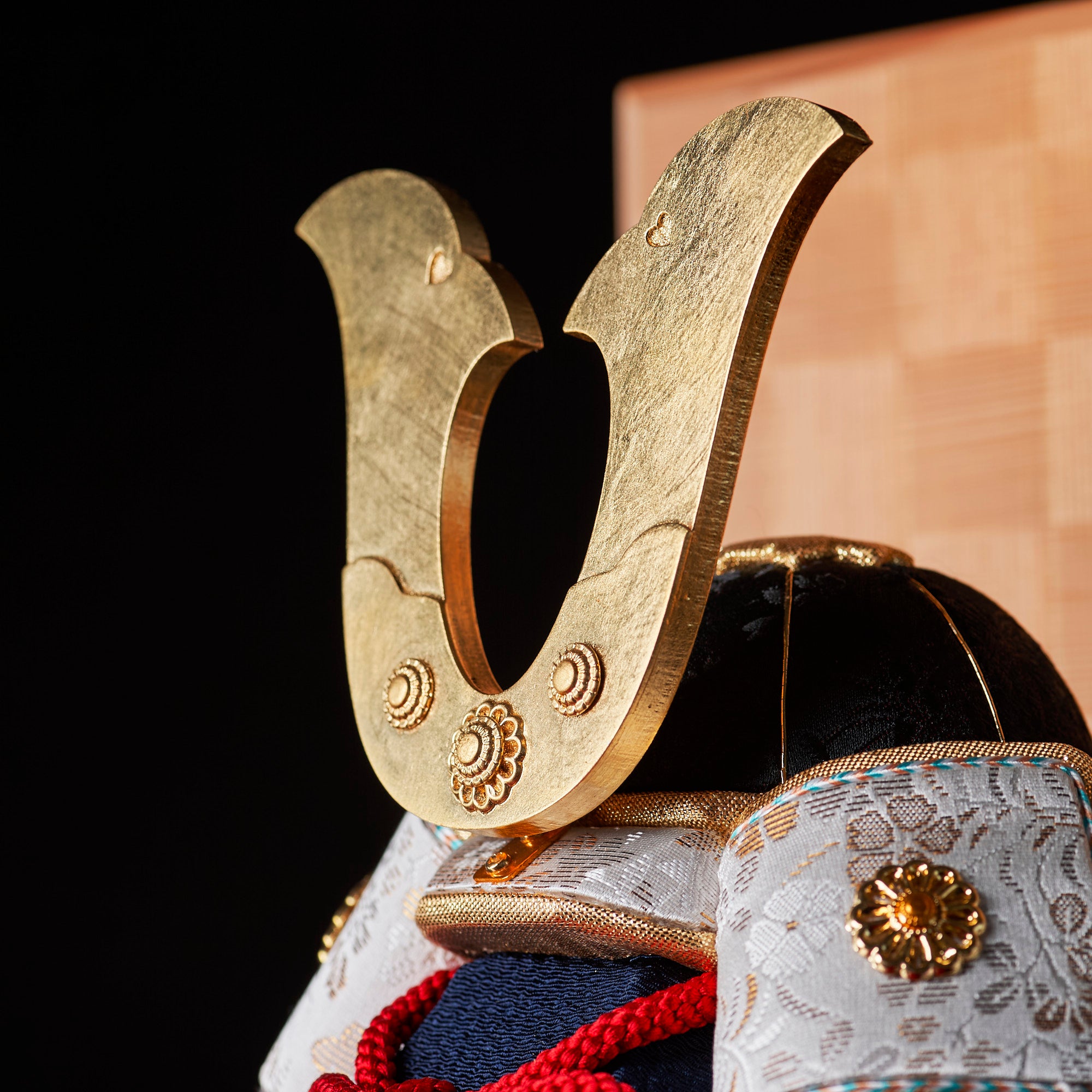
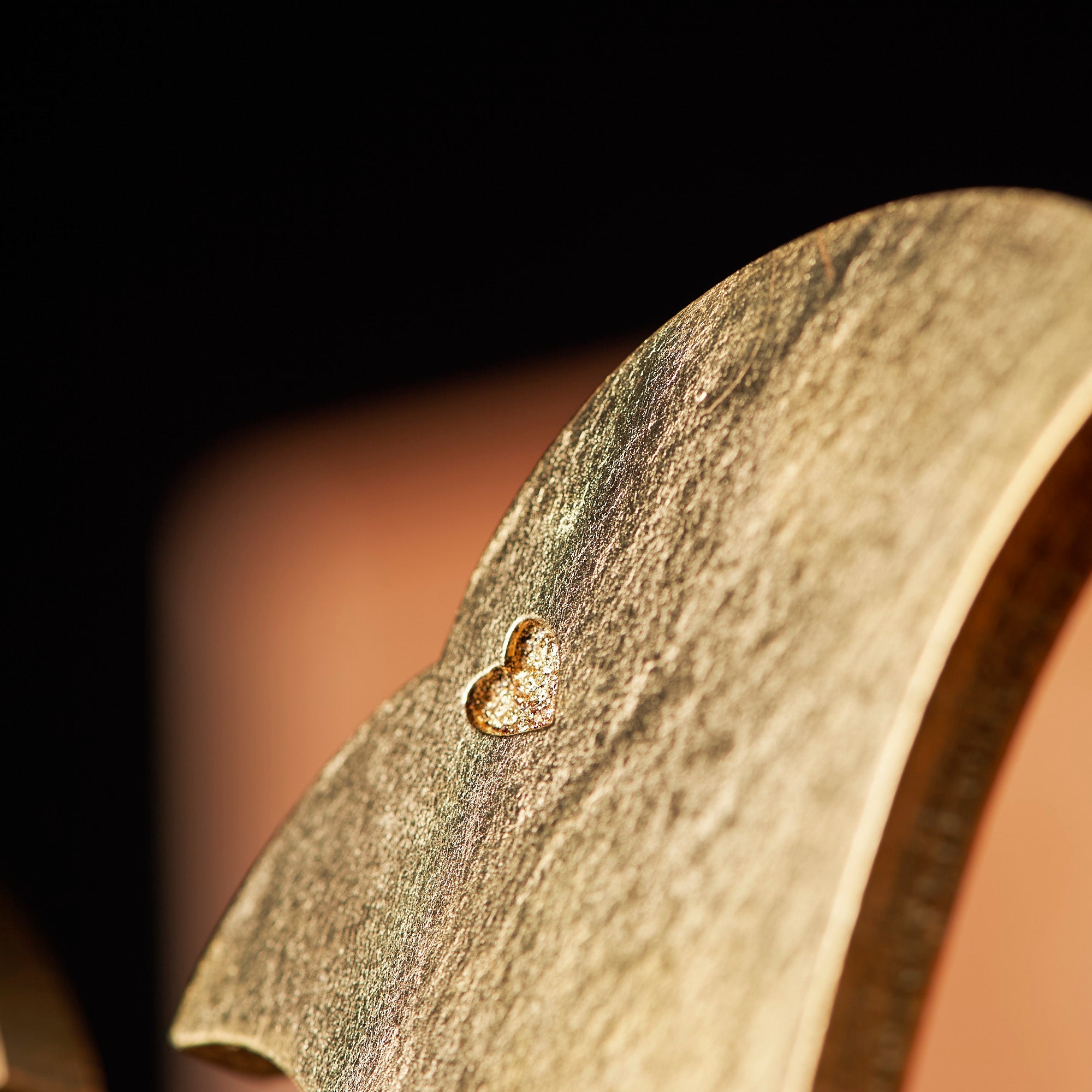
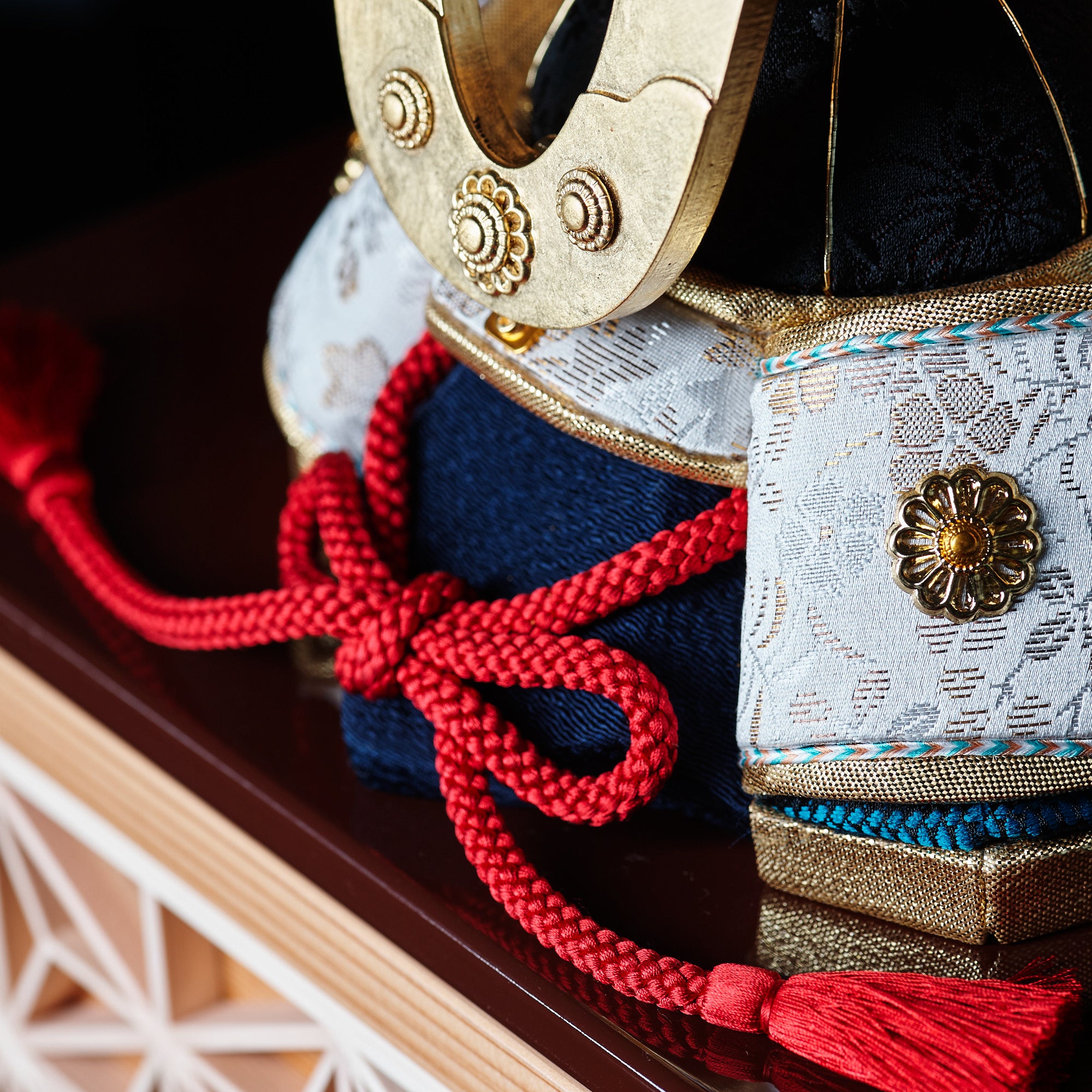
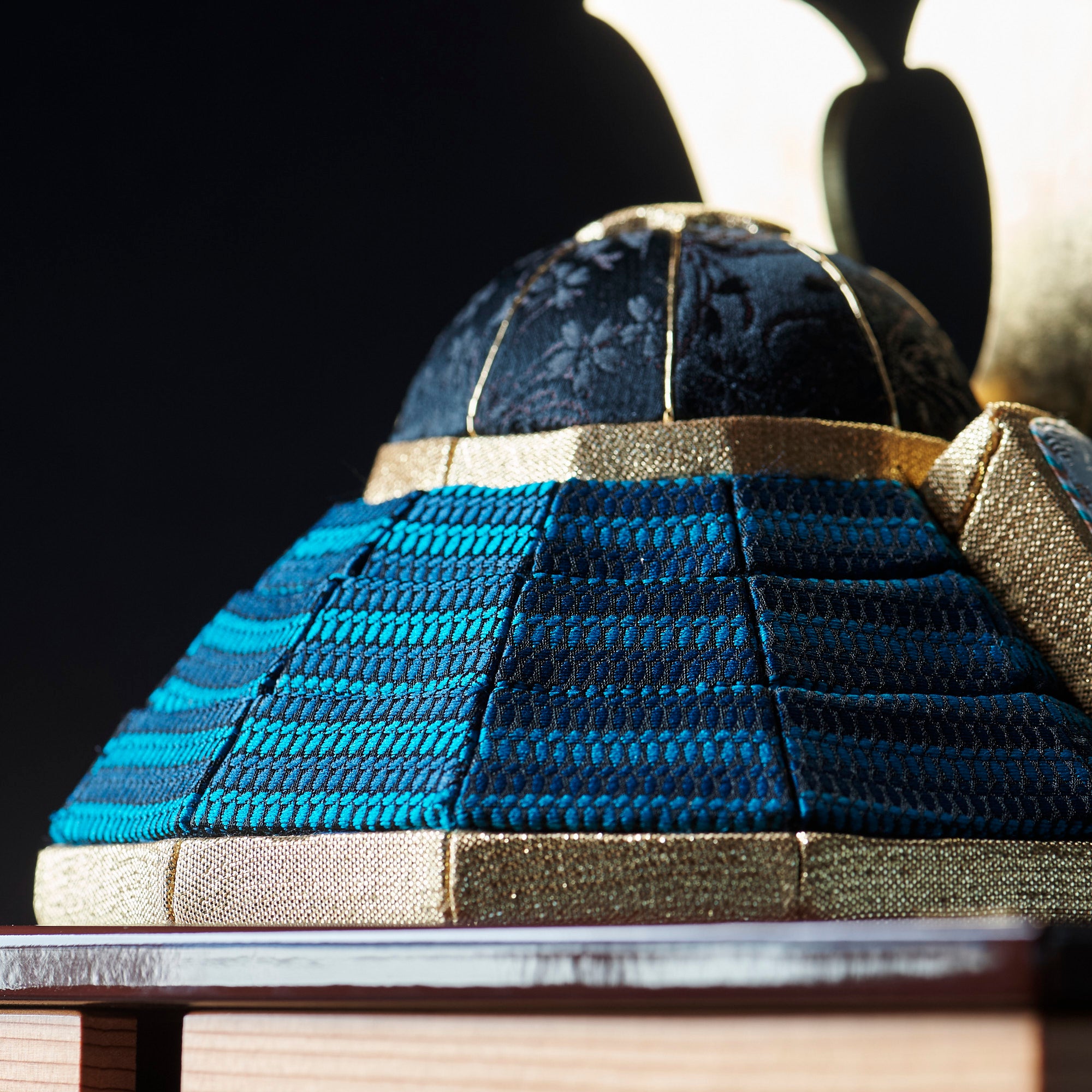
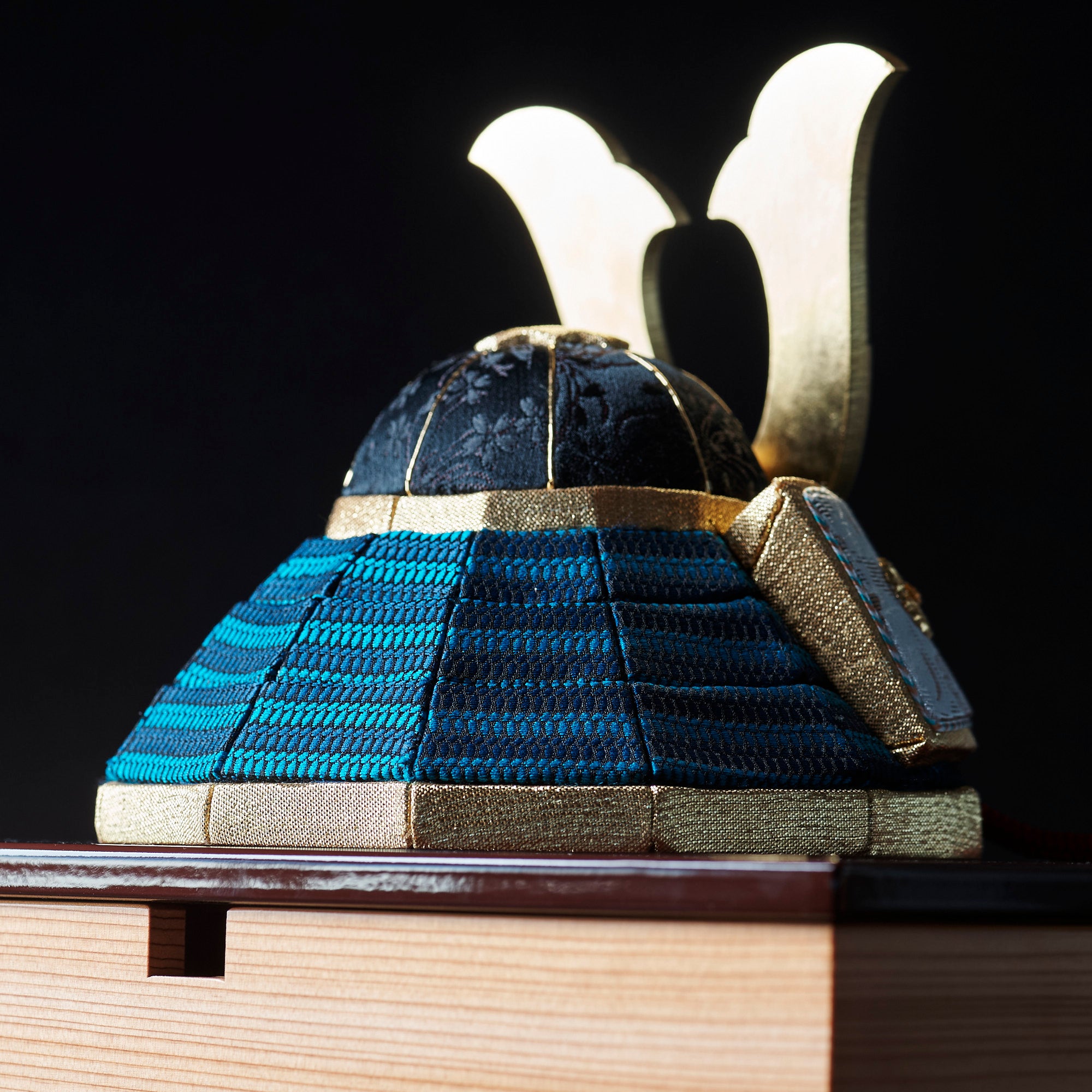
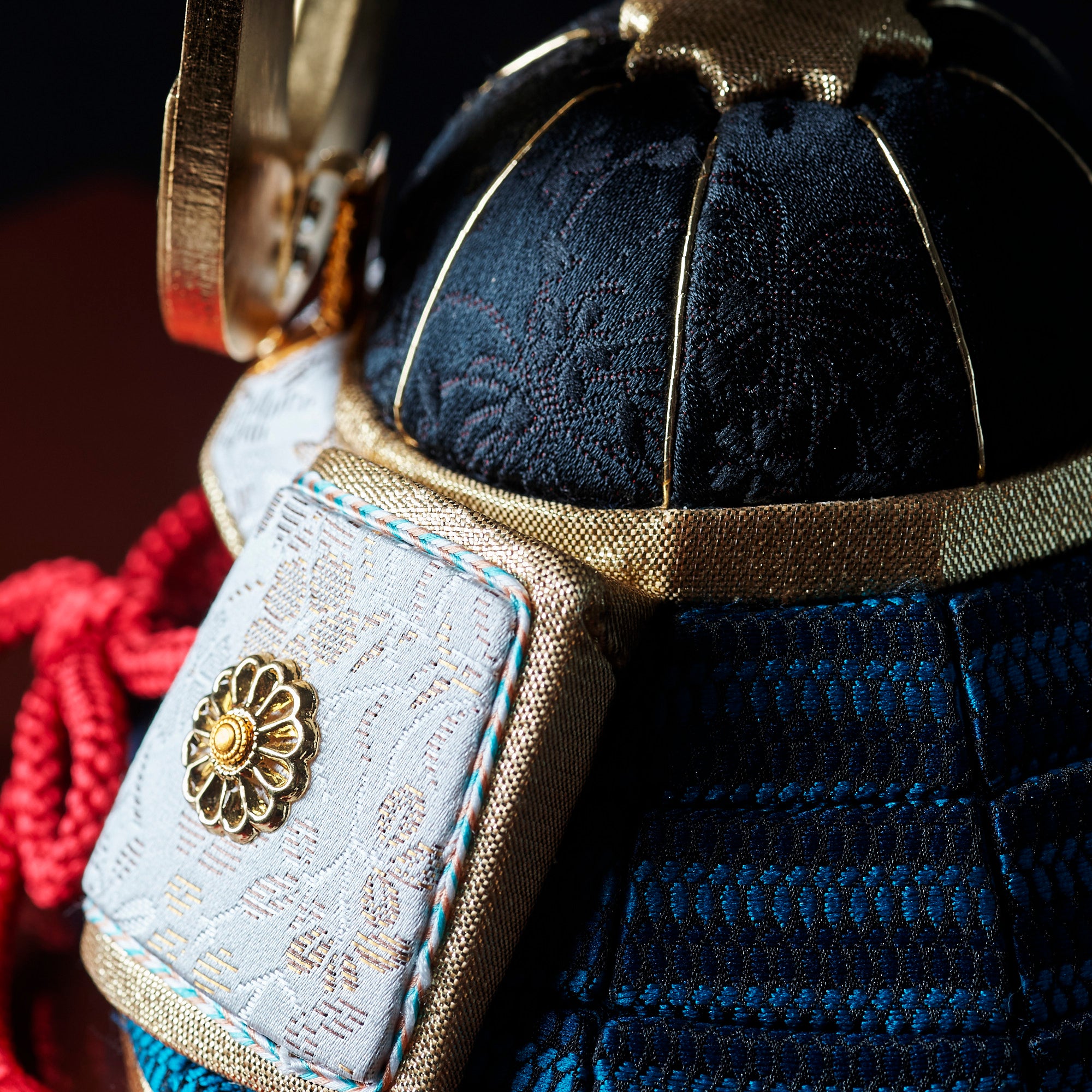
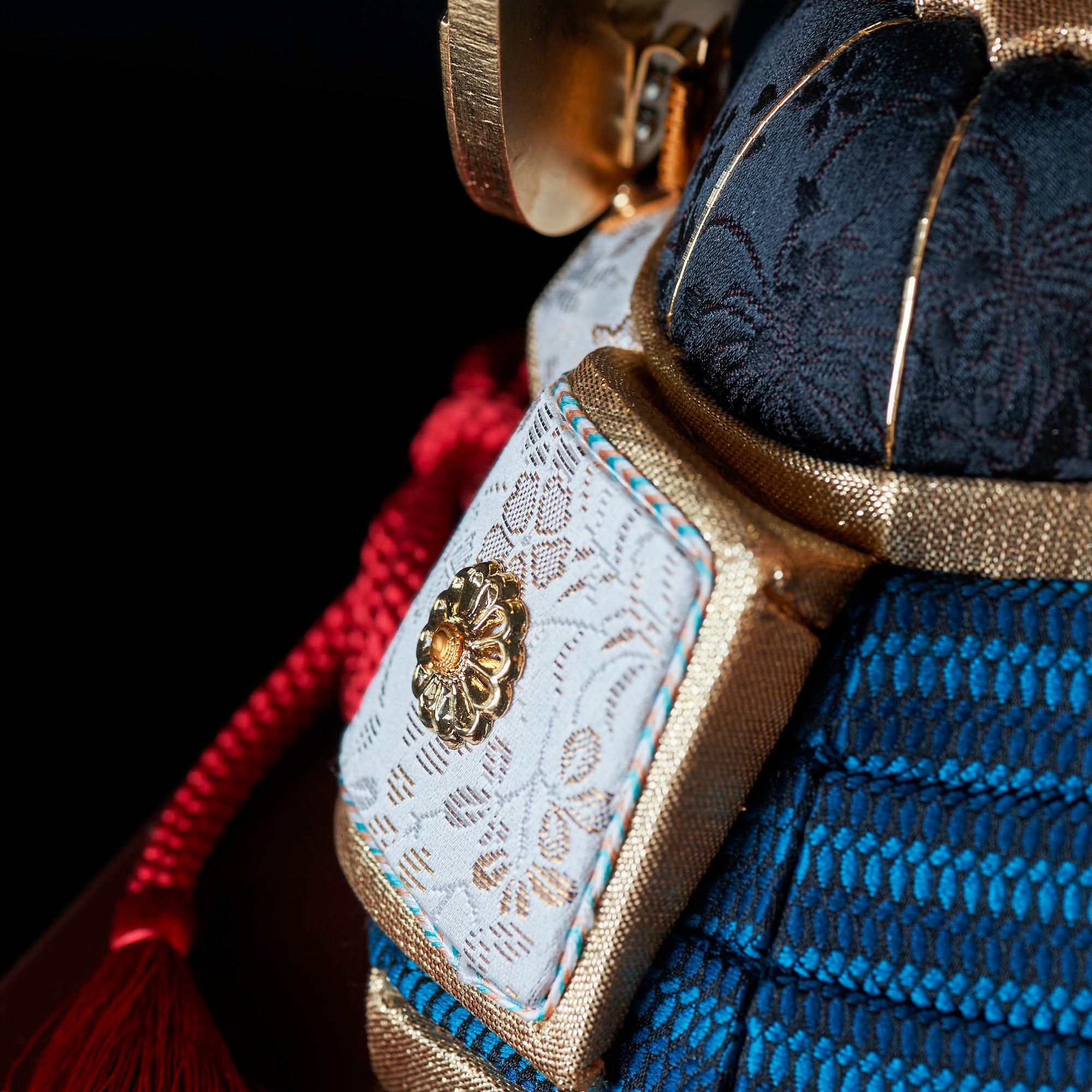
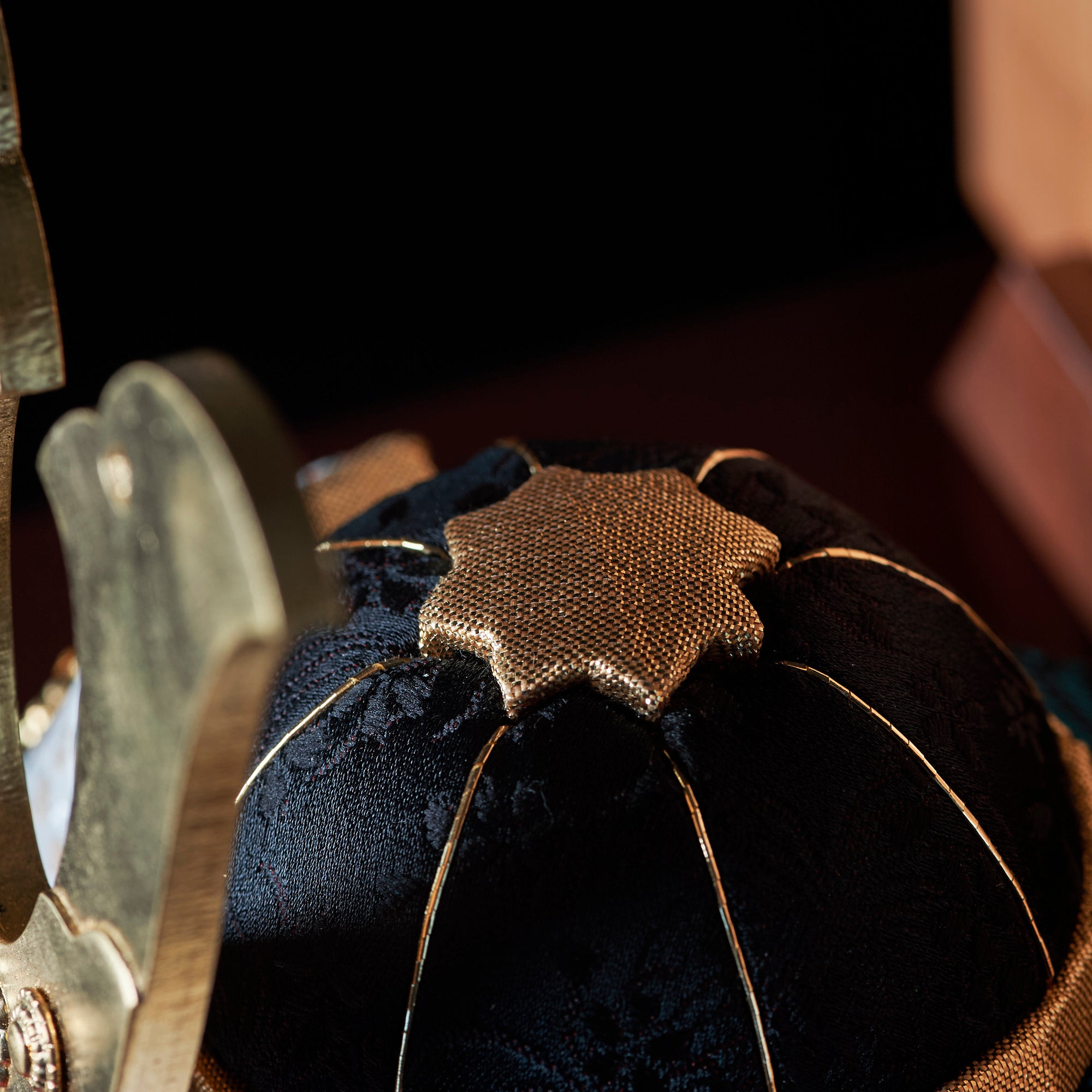
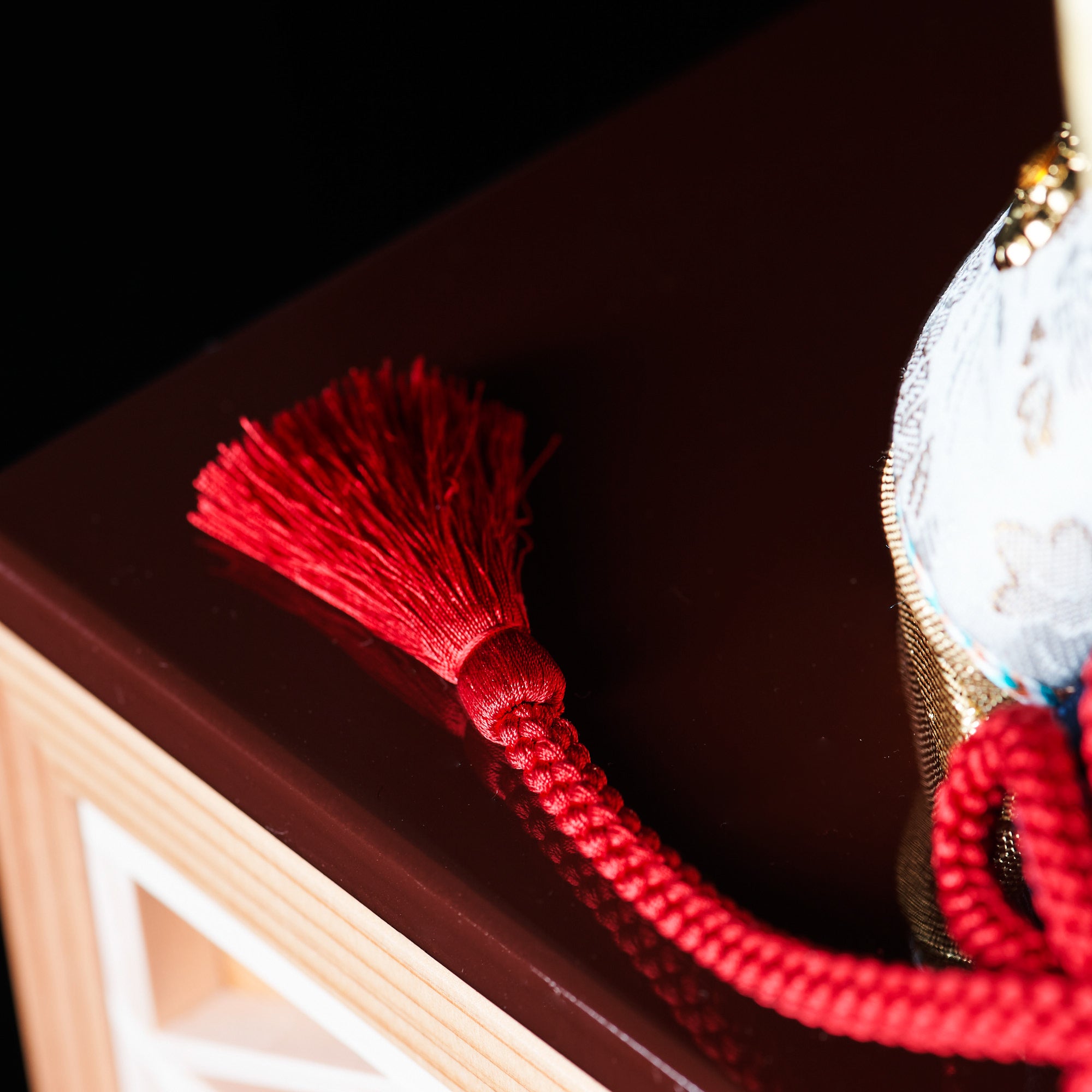
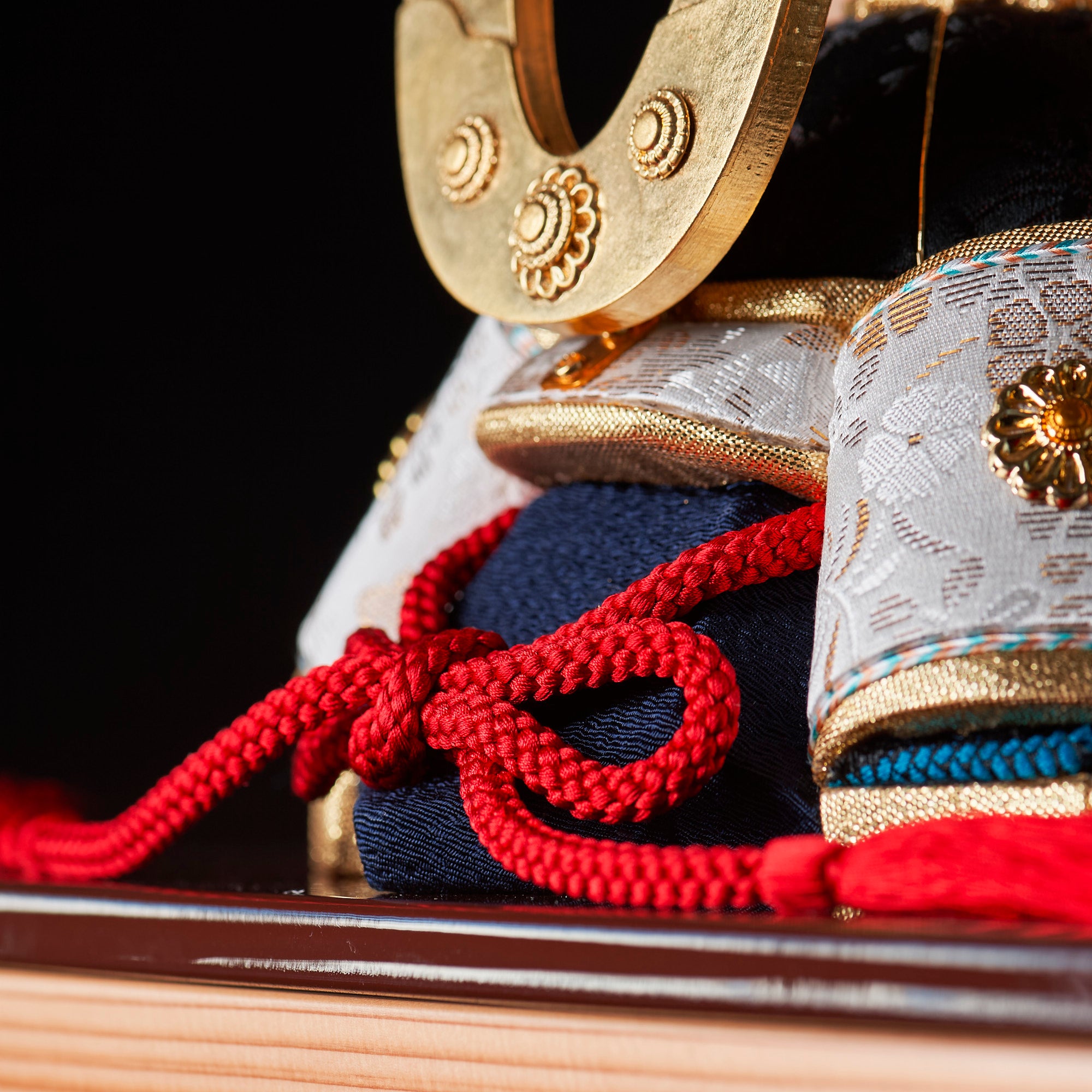
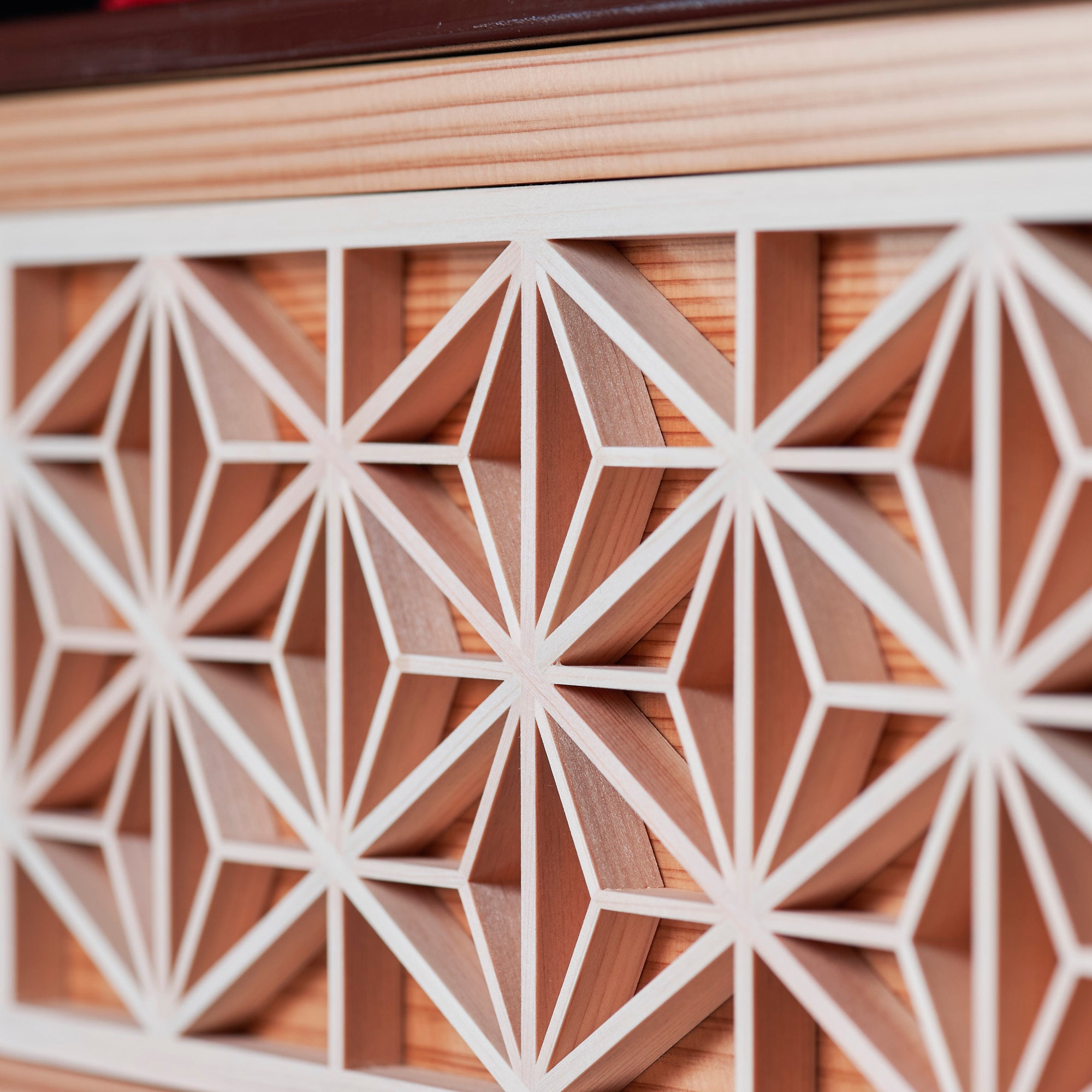
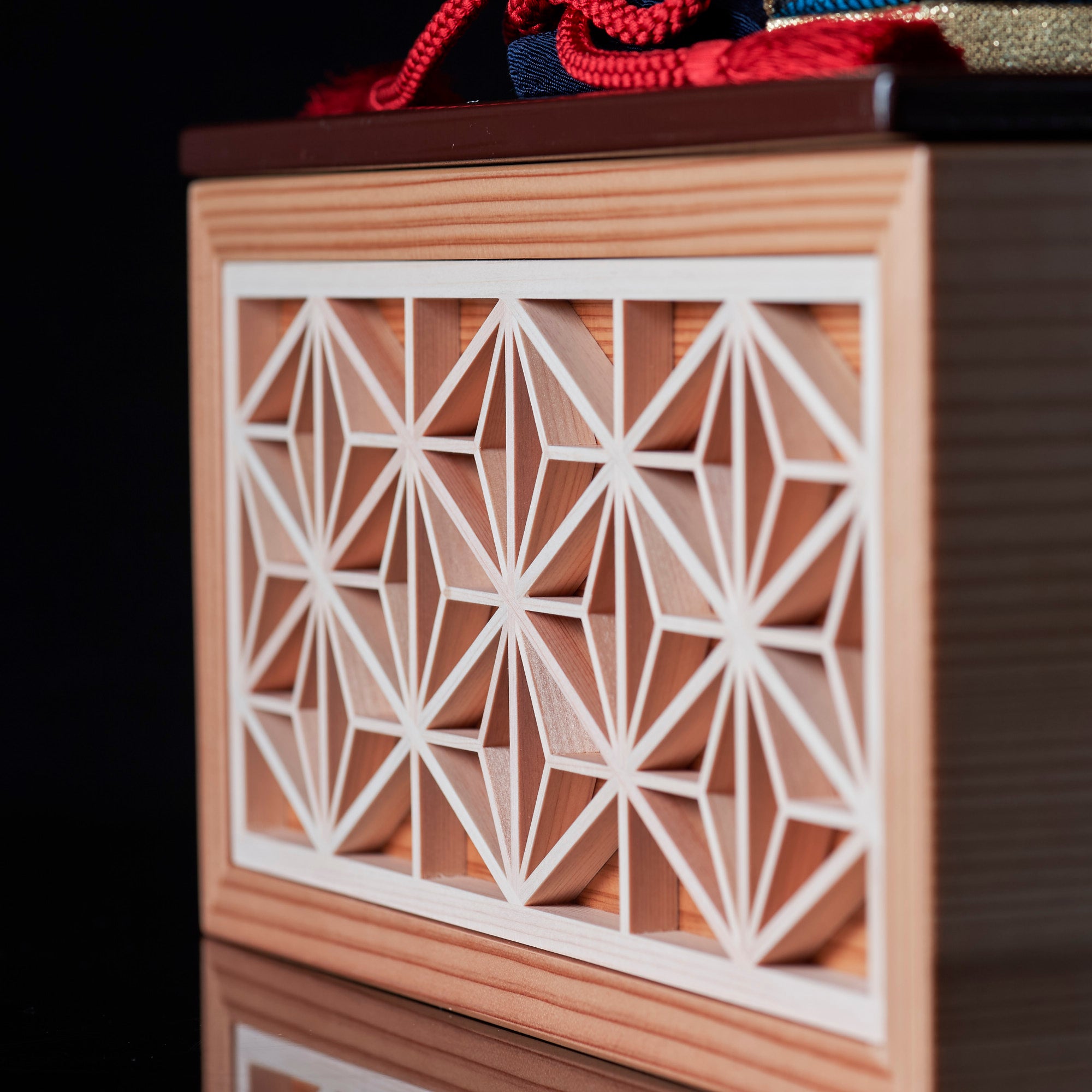
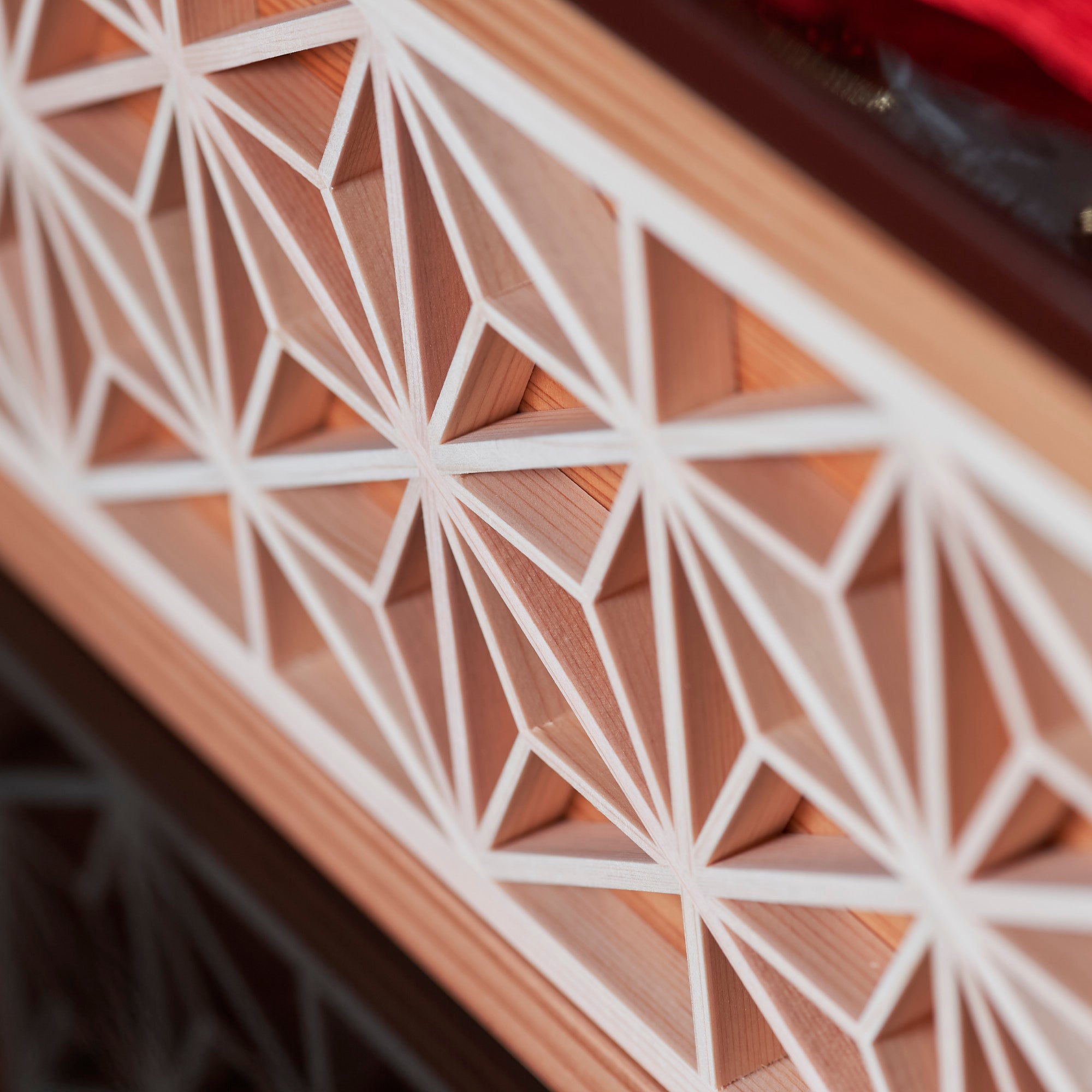
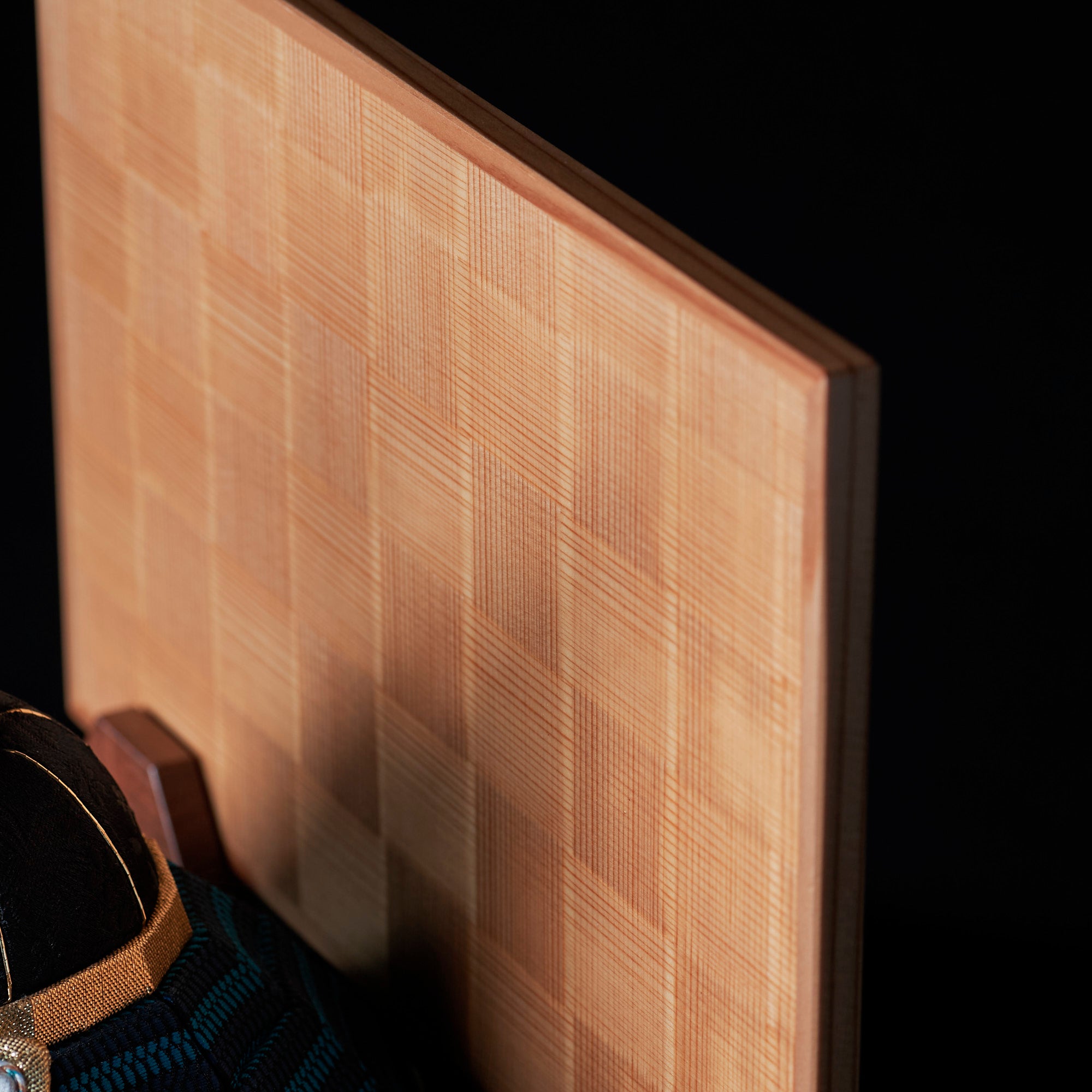
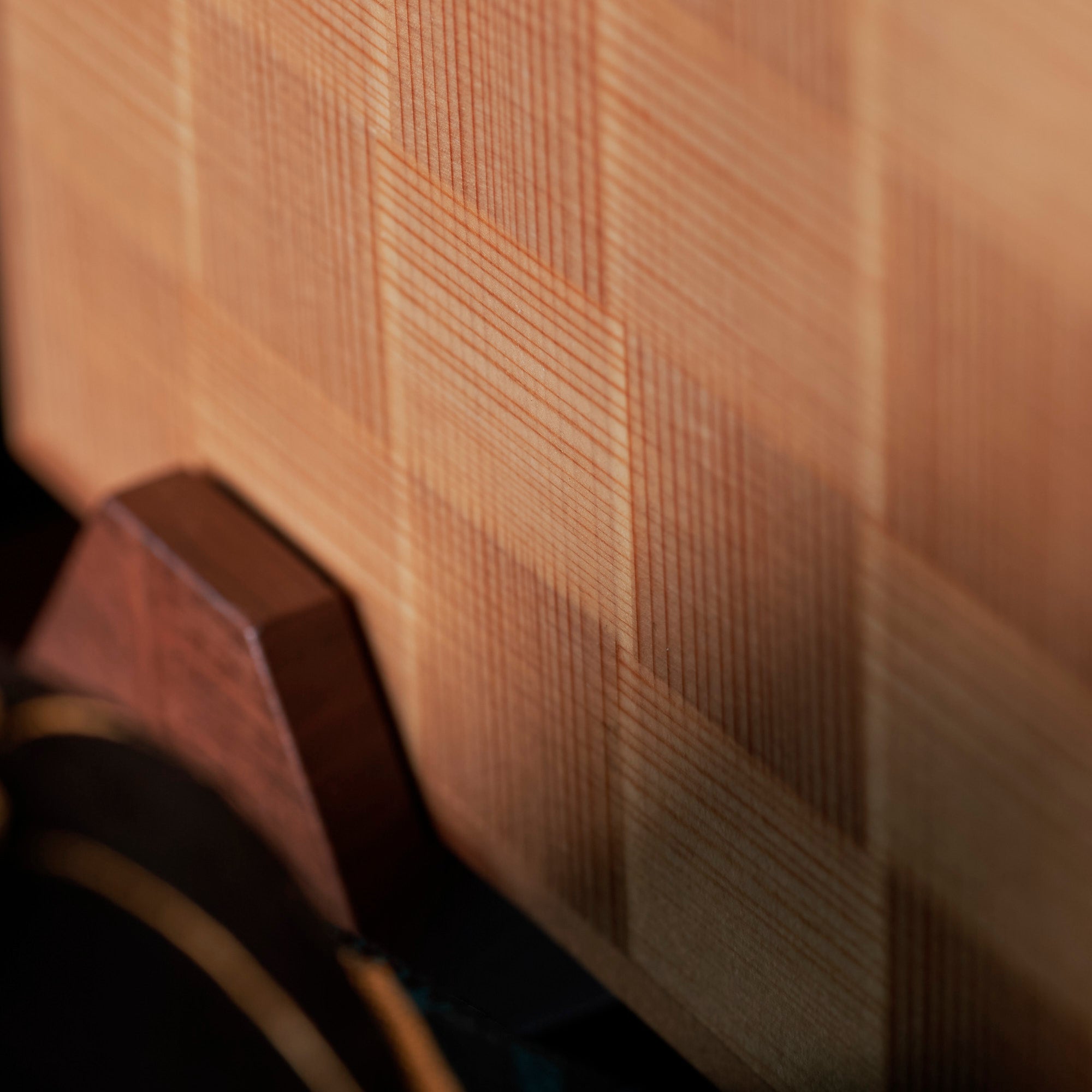
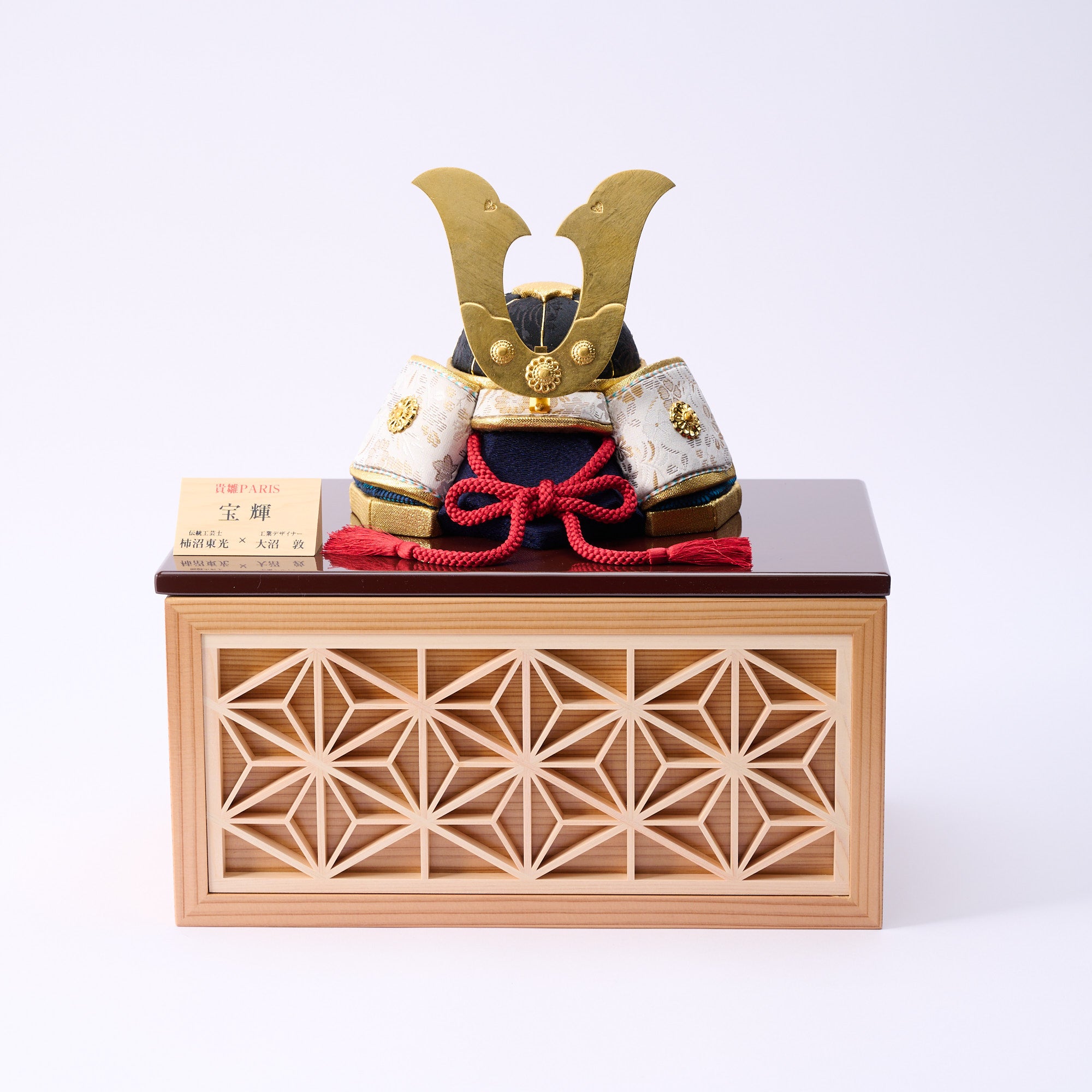
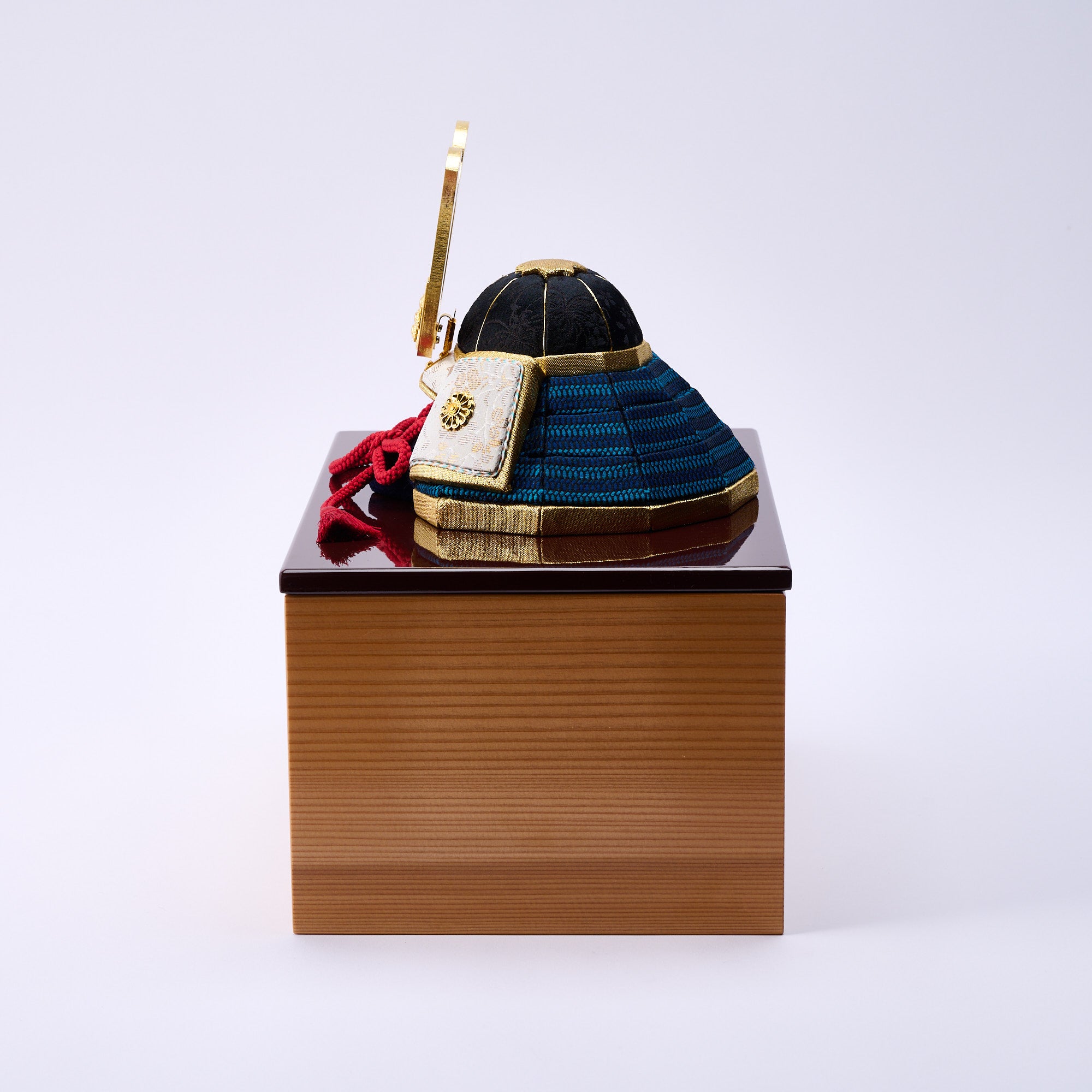
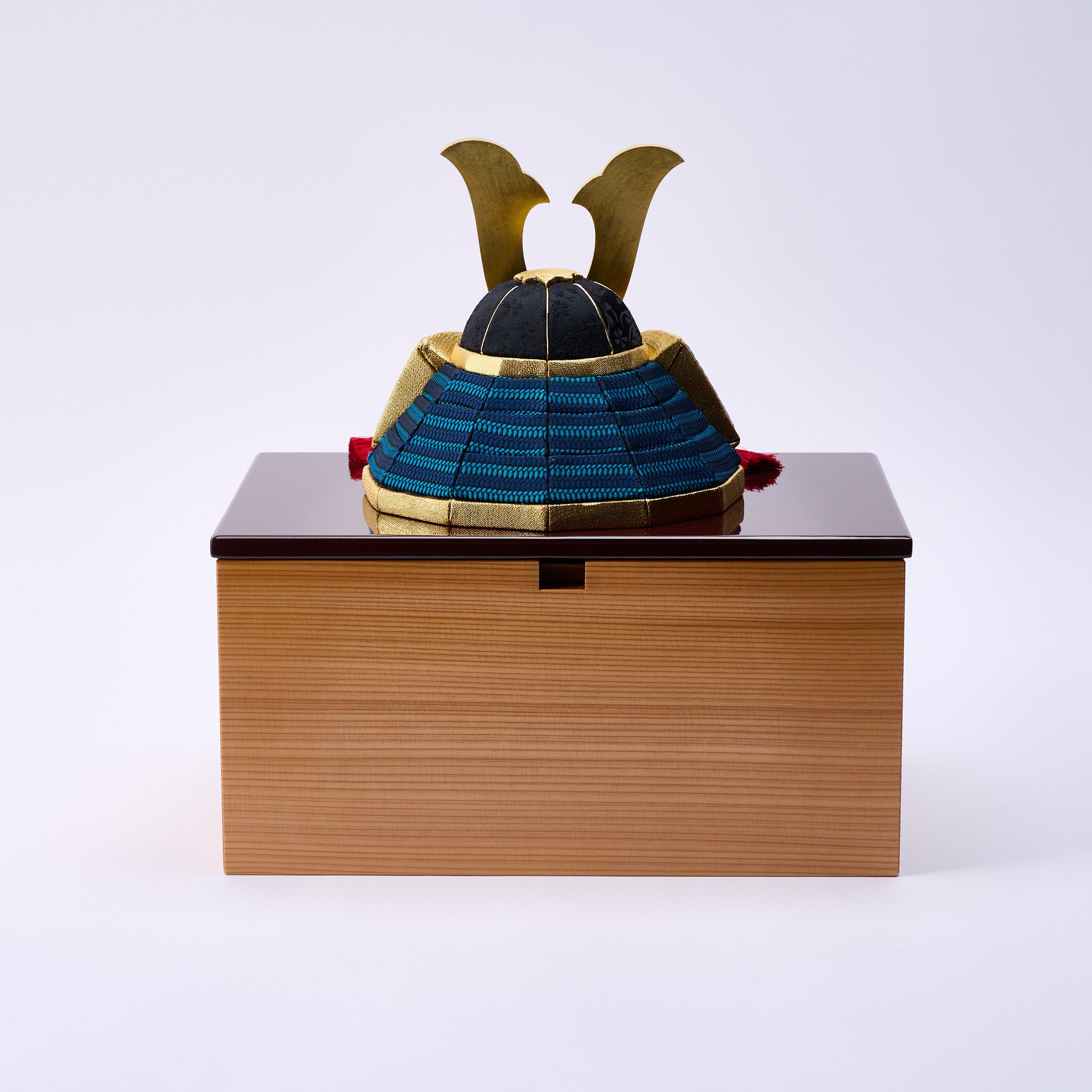
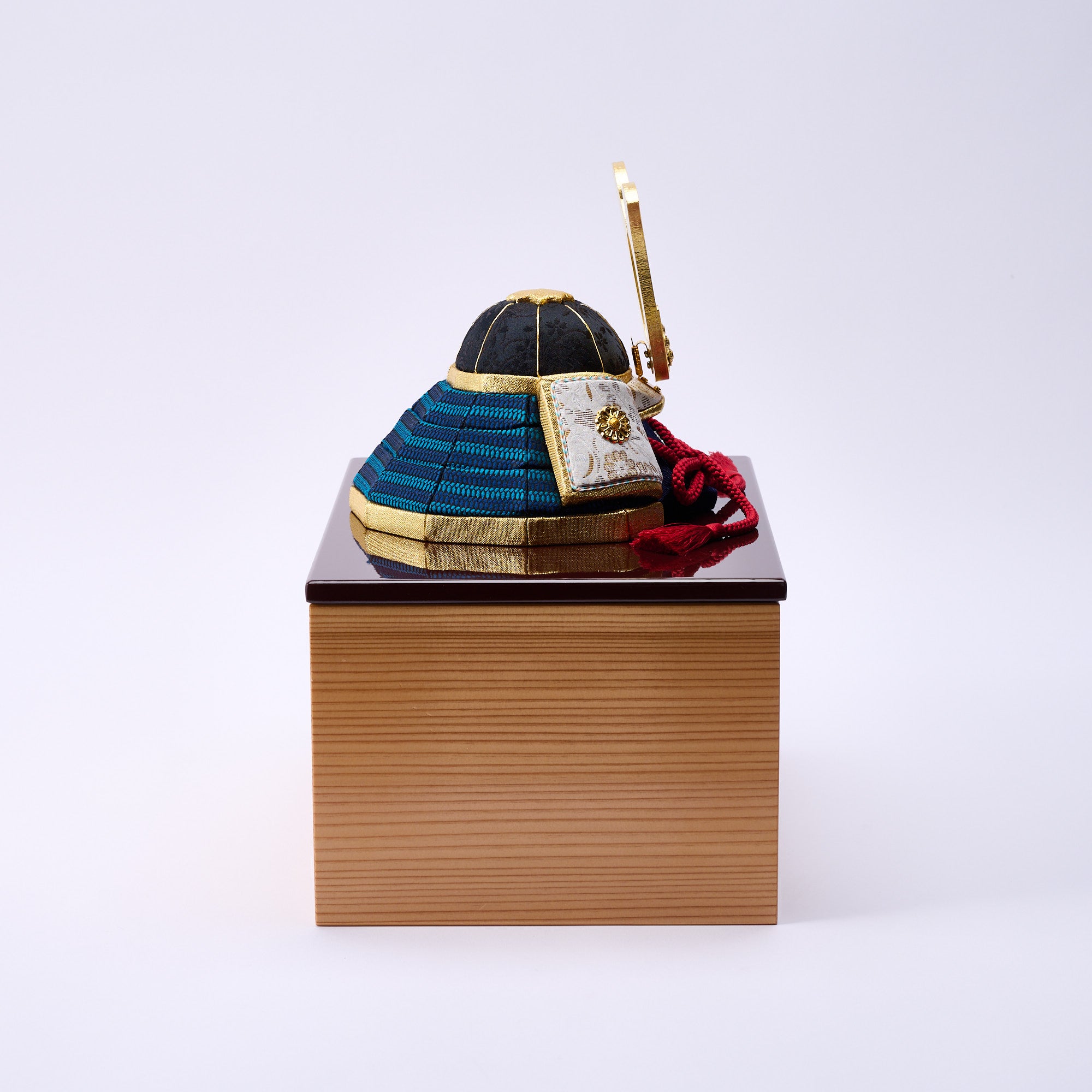
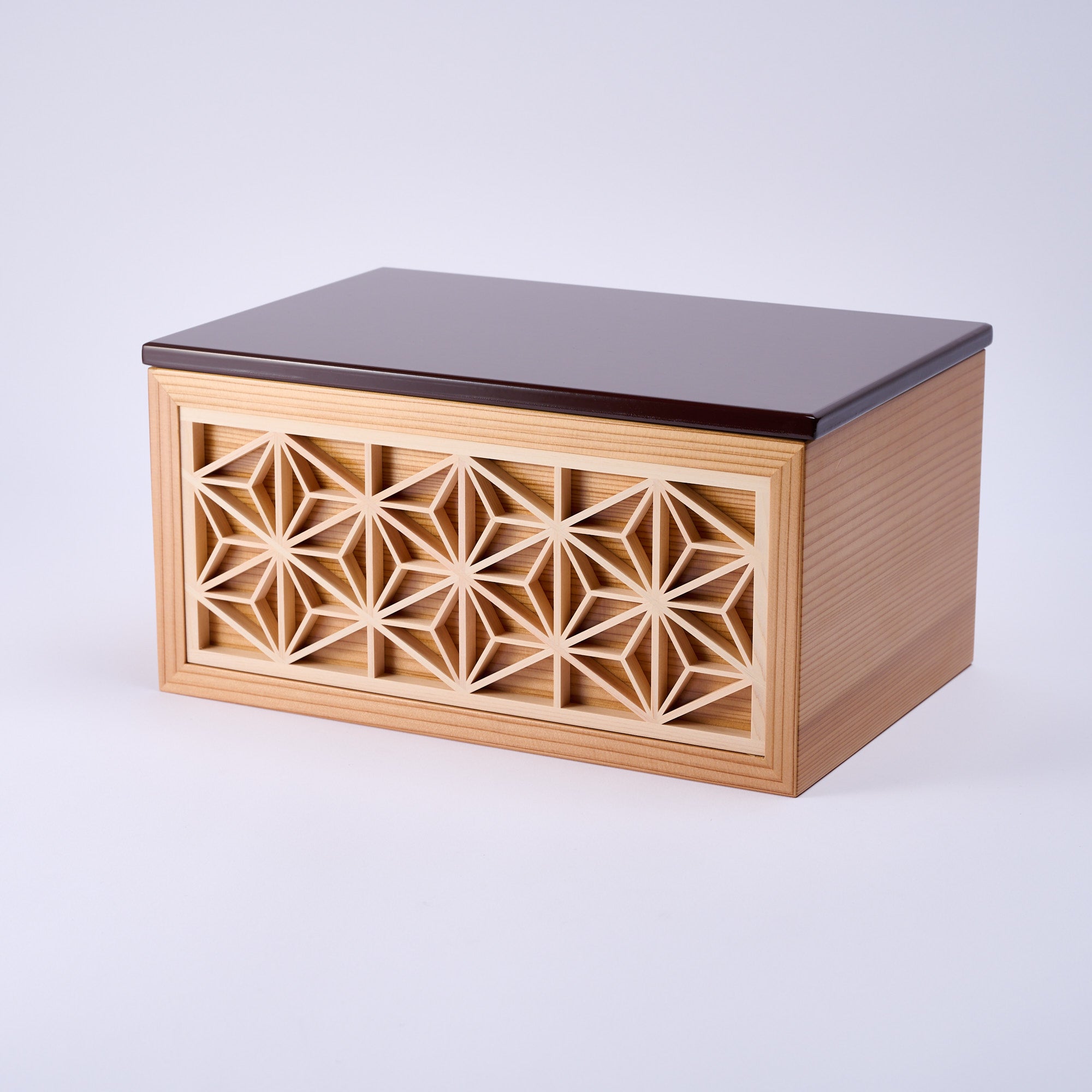
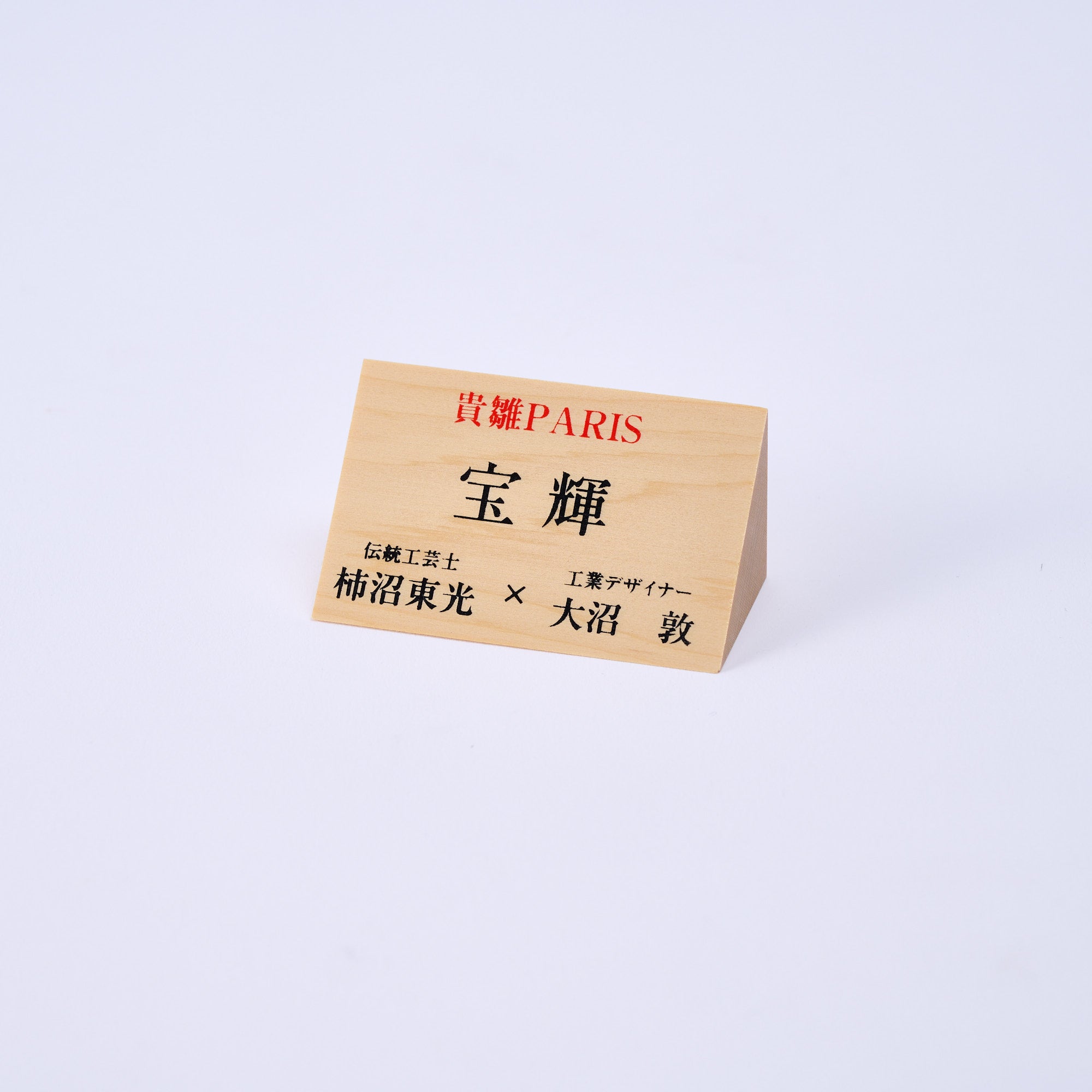
Hoki Kabuto Samurai Helmet Ornament
Estimated Shipping Widget will be displayed here!
This kabuto samurai helmet ornament is meticulously handcrafted by skilled artisans using the traditional kimekomi technique. Carefully selected fabrics are combined with precision, ensuring that every detail is perfected. The name “Hoki” literally means “treasure” and “radiance” in Japanese, embodying an air of refined elegance and nobility.
Samurai helmets, or kabuto, were originally worn for protection in battle and symbolize safeguarding one’s life. In Japan, this symbolism carries into Tango-no-Sekku, Boys' Day, celebrated on May 5th, when families display kabuto ornaments in their homes to wish for their children's safety, health, and strong growth.
This samurai helmet ornament features refined, understated patterns throughout, giving it a distinctly traditional presence. The fukikaeshi, which flares out on both sides of the helmet, was designed to protect the face by deflecting sword strikes coming from the sides. Here, it is adorned with chrysanthemum motifs, a symbol of nobility and grace. Meanwhile, the maedate, the decorative crest affixed to the front of the kabuto, was intended to assert individuality and presence on the battlefield. It, too, is embellished with elegant chrysanthemum designs.
The decorative stand is just as refined, with the front adorned with a hemp leaf motif symbolizing a wish for children's growth. The rectangular screen, crafted from Akita cedar in a checkered pattern, complements the stand. Together, they serve not only as a display but also as a functional storage solution.
DES DÉTAILS
| Quantity | 1 samurai helmet, 1 decorative stand, 1 screen, 1 wooden name plate |
| Size |
[Samurai helmet] L 17.5 cm (6.9 in) x W 17.5 cm (6.9 in) x H 17 cm (6.7 in) [Decorative stand] L 20.5 cm (8.1 in) x W 30.5 cm (12 in) x H 35 cm (13.8 in) [Screen] L 18 cm (7.1 in) x W 28 cm (11 in) |
| Material |
[Samurai helmet] MDF (Medium Density Fiberboard), fabric [Decorative stand, screen] MDF (Medium Density Fiberboard) |
| Package Type | Paper box |
Fabricant / Marque
Fondée en 1950, Kakinuma Ningyo est un modèle d'excellence dans le domaine des poupées Edo Kimekomi, une forme distinguée de l'artisanat traditionnel japonais. Du classique Chine des poupées et des poupées Boys'Day aux créations modernes et imaginatives comme maneki neko (chats chanceux) et DarumaChaque pièce allie harmonieusement savoir-faire ancestral et élégance contemporaine. S'engageant à innover tout en respectant la tradition, Kakinuma Ningyo continue de créer des œuvres exceptionnelles qui relient le passé et le présent de l'artisanat japonais.
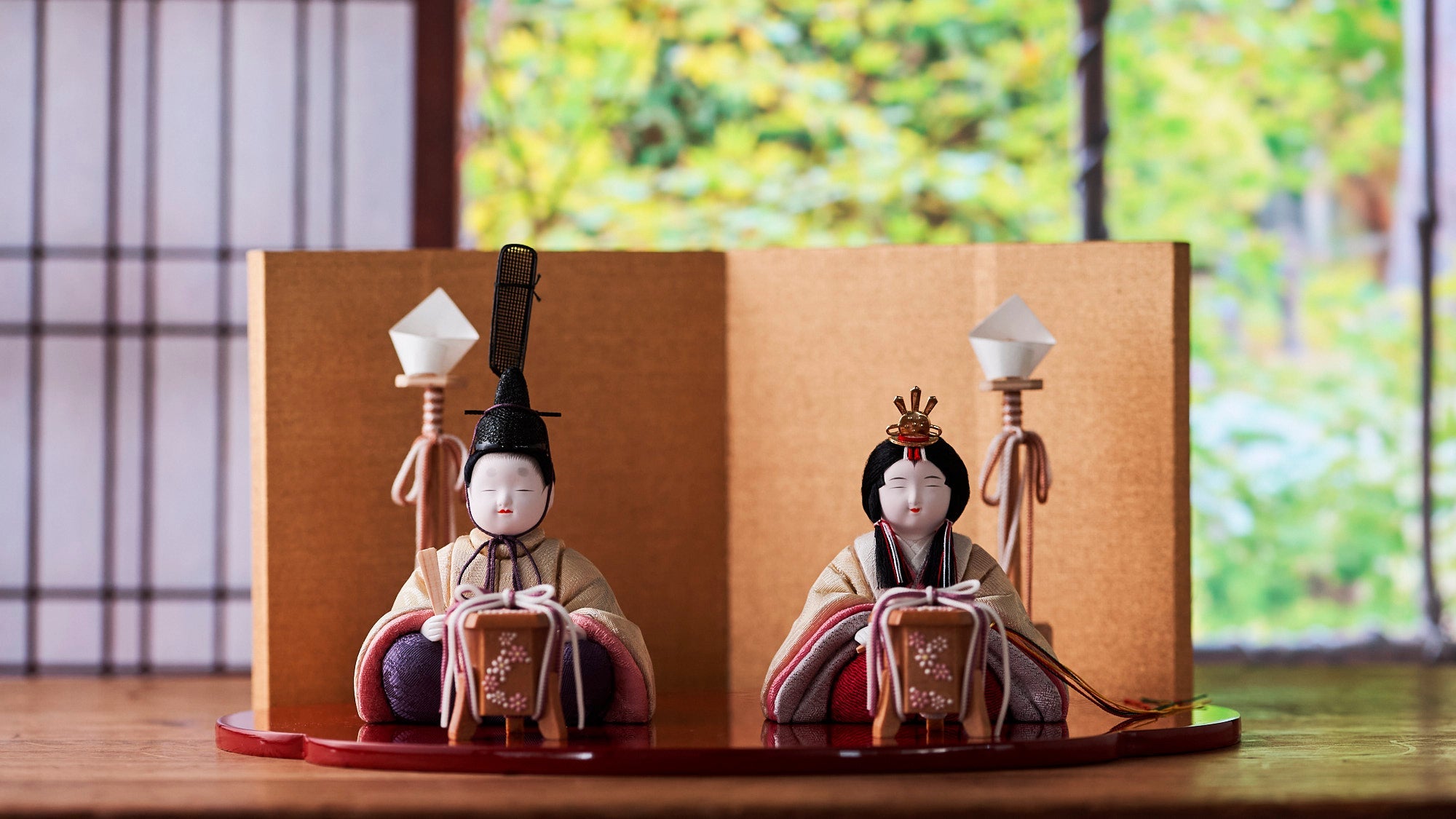
Artisanat
Les poupées Edo Kimekomi sont de petites poupées en bois fabriquées en bois de paulownia et habillées de textiles de soie traditionnels japonais.
Originaires de Kyoto, les poupées Kimekomi ont été introduites à Edo (aujourd'hui Tokyo) , où elles ont développé un style unique. Ces figurines d'une extrême finesse sont des souvenirs appréciés, ancrés dans les traditions japonaises.
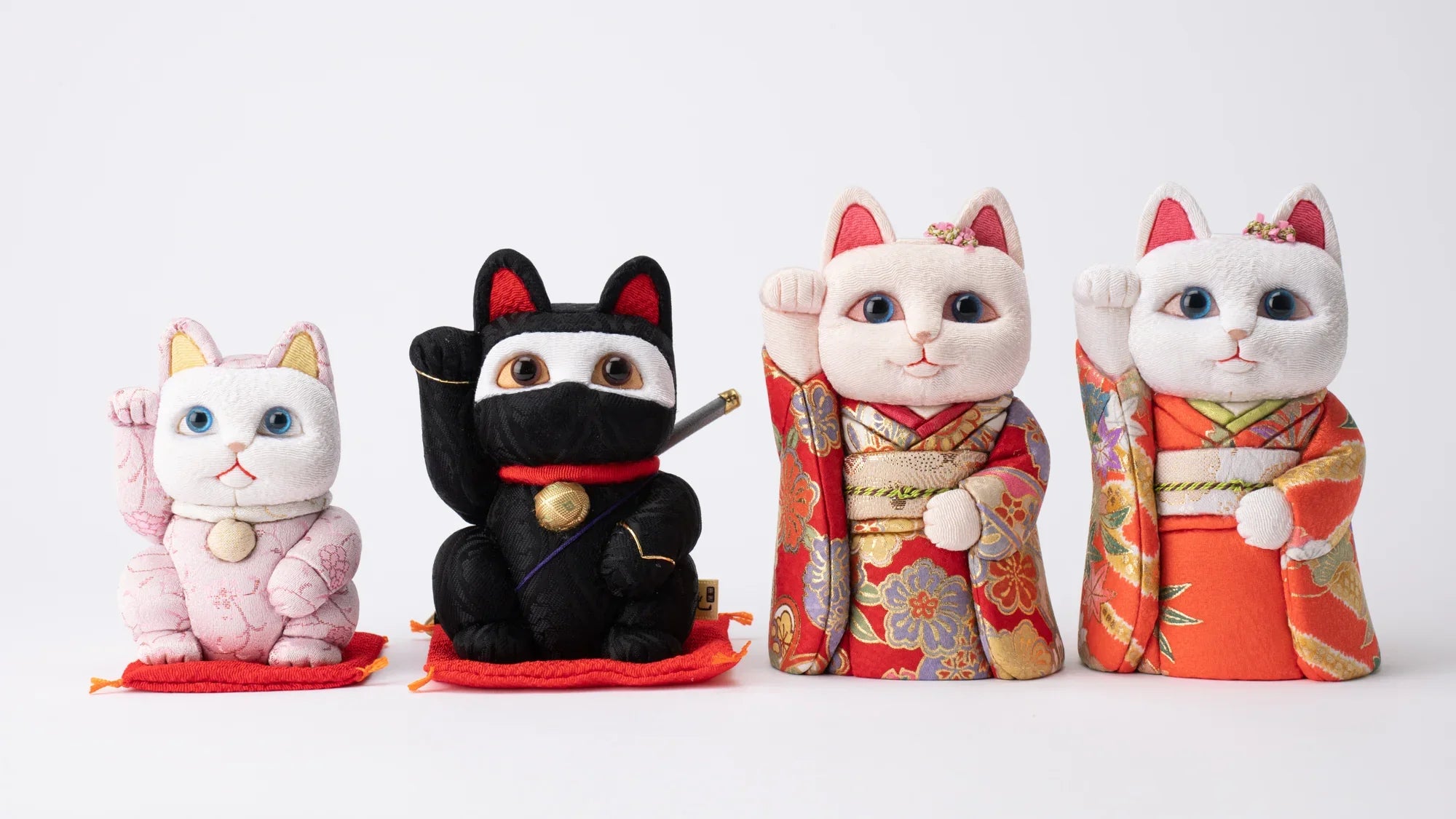
Choisir les options






















Estimated Shipping Widget will be displayed here!
Casques de samouraï
Casques de samouraï, connus sous le nom de Kabuto, sont des plats traditionnels japonais coiffe conçue à l'origine pour protéger les guerriers au combat. Au Japon, Kabuto Il ne servait pas seulement de protection, mais symbolisait également la dignité et l'individualité du samouraï.
Ce symbolisme perdure dans Tango-no-Sekku — également connu sous le nom de Journée des garçons, désormais célébrée dans le cadre de la Journée des enfants le 5 mai — lorsque les familles exposent des ornements de kabuto dans leurs maisons pour prier pour la santé, la force et la sécurité de leurs enfants.
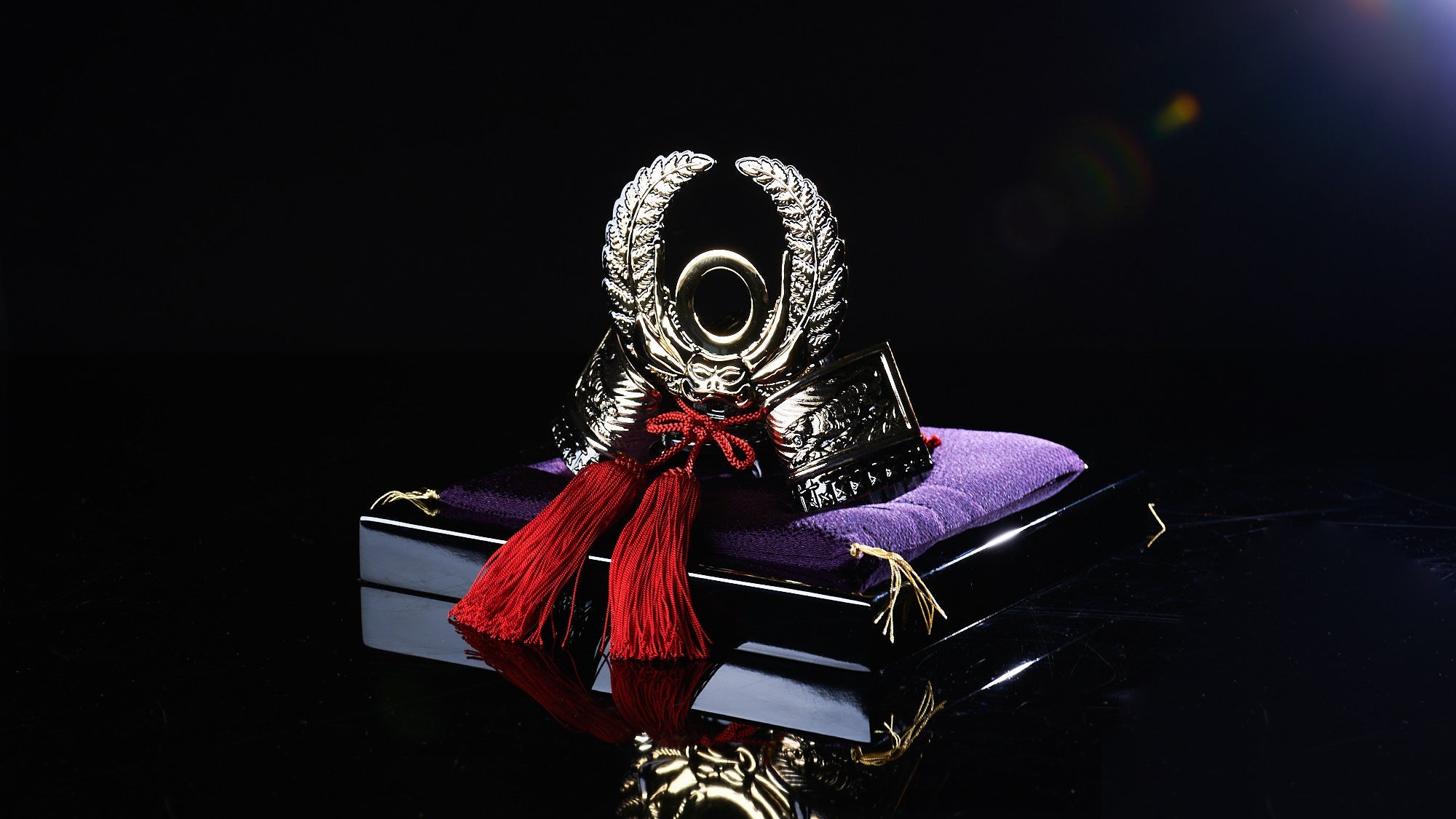
Poupées du Festival de mai
Les poupées de la fête de mai sont utilisées pour célébrer le Tango-no-Sekku, aussi appelé Journée des enfants ou Journée des garçons. Cette tradition trouve son origine à l'époque de Nara (710 apr. J. -C. ) . –794 apr. J. -C. ) . À l'époque d'Edo (1603 apr. J. -C. ) – (1868 apr. J. -C. ) , le 5 mai devint un jour férié et fut instauré sous le nom de Tango-no-Sekku. Durant cette période, la fête devint largement célébrée par les habitants d'Edo, et les poupées commencèrent à servir de décorations.
La disposition de ces poupées symbolise la célébration collective de la naissance d'un garçon par la famille, incarnant l'espoir que l'enfant évitera maladies, accidents et autres malheurs, et grandira fort et en bonne santé. Armures et casques sont exposés comme des talismans de protection corporelle, exprimant des vœux de sécurité, de santé et de croissance vigoureuse.
